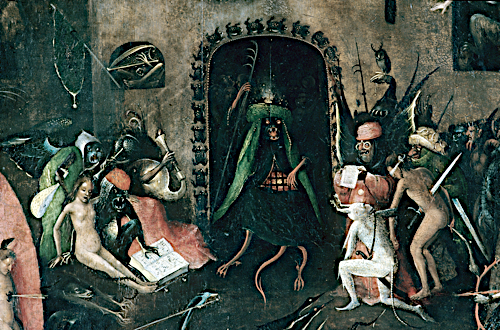Undergraduate Seminar: Hieronymus Bosch

Blending realism, allegory and fantasy, the paintings of Hieronymus Bosch (c. 1450-1516) have captivated, puzzled and shocked their audiences for more than five hundred years. Yet, despite their great appeal to the imagination, and their often bawdy and frivolous subject matter, Bosch's paintings are at heart didactic and moralizing works--works that seek to address profound theological and ethical questions, all of which Bosch and his contemporaries ultimately considered to derive from Eve's fatal mistake in the Garden of Eden. Centering on humanity's frailty, folly, proneness to sin (even, perhaps, the sin of attempting to tamper with Nature's works), and ultimate destiny, Bosch's paintings employ a number of visual strategies that range from biting satire to what may be called the pictorial construction of alternative, better, worlds. In exploring these aspects, we will primarily focus on Bosch's great triptychs, specifically the 'Garden of Earthly Delights' and the 'Haywain' (both in Madrid), the 'Temptation of St. Anthony' (Lisbon), and the 'Last Judgement' (Vienna). While the nature of this seminar is determined by a strong element of visual analysis, we will also be reading a series of contemporary texts that help us better understand and contextualize Bosch's often striking pictorial inventions; these include devotional and moralizing treatises such as the 'Art of Dying Well', hagiographical sources, particularly the 'Golden Legend', as well as humanistic literature, for instance Sebastian Brant's 'Ship of Fools' or Erasmus of Rotterdam's 'Praise of Folly'. It is expected that the student will leave this seminar not only with a better understanding of the art of Bosch, but also with a deeper appreciation of late medieval visual culture at large.
Estimated Cost of Materials: less than $50.
HISTART category for concentration distributions: D. Europe and the US, 3. Early Modern.